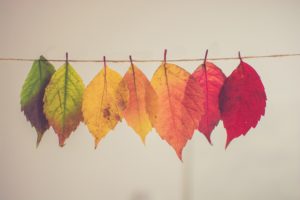 “Spring passes and one remembers one’s innocence.
“Spring passes and one remembers one’s innocence.
Summer passes and one remembers one’s exuberance.
Autumn passes and one remembers one’s reverence.
Winter passes and one remembers one’s perseverance.”
― Yoko Ono
I grew up in south Florida and lived with two seasons: summer, which lasted about nine months, and summer without cloying humidity, which coincided with what most of the rest of the country calls winter. I was a girl with ample sunshine, but I was a girl without seasons.
During my childhood, snow was something that only happened on TV. The holiday tropes of sleighs and Frosty and ice skating were storylines from some distant place we’d never seen as kids. Winter was a foreign country, as strange to me as Mongolia or Uruguay. It didn’t seem like something that came and went; winter was a place—always white, always cold.
Spring had something to do with pink and flowers and the mudlisciousness that e.e. cummings rhapsodized about, but I was not in its thrall. In Florida we had flowers year round and mud in our backyard whenever it rained, which was pretty often. When my mother played the soundtrack from South Pacific, she hummed along with “Younger Than Springtime.” I read the lyrics on the album liner; the figurative language was lost on me and the song was way too mushy.
For me, fall was the least likeable. It clearly didn’t have the same zealous PR as the other seasons. Spring, summer and winter starred in poetry, films and ads for the Good Life. Those seasons had star power. Fall? It was a verb and something I did pretty enthusiastically as I was learning to ride my bike. Fall was a seasonal stepchild reduced in my lackluster visual vocabulary to a single image: trees aflame with orange and yellow leaves. And then there was the two name thing. Was it fall or autumn?
Fall, autumn—the season used to be called harvest, the prevailing event after the summer incubated, coaxed, warmed and ripened what it could. Autumn, from the Latin autumnus, first appears in English in the late 14th century. Fall makes an appearance 300 years later. By the 19th century both fall and autumn were swapped interchangeably, though fall was regarded as more American and autumn the decidedly British term.
In The King’s English, published in 1908, H.W. Fowler writes, “Fall is better on the merits than autumn, in every way: It is short, Saxon like the other three season names, and picturesque. It reveals its derivation to everyone who uses it, not to the scholar only, like autumn.” Fall may be the shorter, more Saxon and simpler term, but the word pixie inside me prefers autumn. It leaves a teensy lip buzz in its wake.
Now that I’ve earned my northern Arizona citizenship after calling this mountain town home for 15 years, I find autumn my most savory season. As a child, seasons meant activities. As an adult, seasons become metaphors. Suffused with melancholy and anticipation, autumn is the one I treasure most. Perhaps this season appeals viscerally because I see myself in the autumn of my life, closer to my end than my beginning.
Autumn is the recognition of the finite nature of plenty. It is a season of ebbing. It begins with an extravagance, cranks up its sugars and then hushes and browns. Shadows grow long, drifts of fallen leaves dust the sidewalks, the smell of wood smoke curls into the air. The shortening days, the dropping temperatures, the lessening of the light—these are my cues to turn inward. To slow, to survey, to relish. From the perch of fall, I see the luscious laze of summer in its past tense, and the invitation that winter issues to contract and hibernate. In between these two I rest and expand. I review and focus.
A French proverb calls autumn the hush before winter. In ancient Chinese culture autumn symbolized adversity. Poet John Keats calls autumn the “season of mists and mellow fruitfulness.”
I was 18 the first time I saw autumn’s colors saturate the deciduous trees of Michigan’s Upper Peninsula. I was giddy with the discovery, this Florida girl who had never owned a coat, never raked a leaf. I lived in a world of blues and greens. Now when another autumn lands and spreads out its blanket, I feel once again the longing that is the soundtrack of my life. The longing saturates me, reminds me of all I’ve loved and witnessed. Autumn urges me to live as deeply and widely as I am able, and reminds me that my winter is just ahead.

